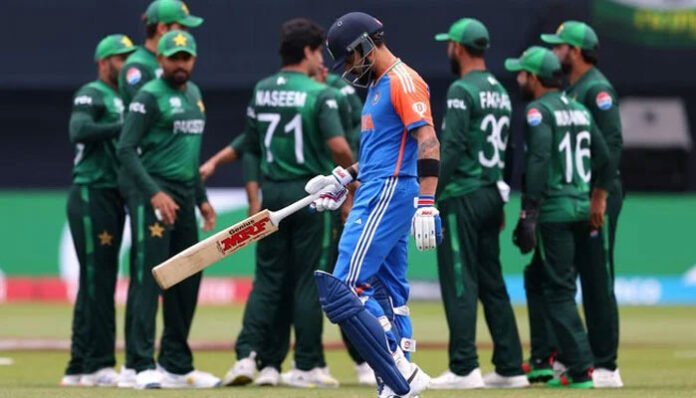Dubai is once again at the center of the intense Pakistan-India cricket rivalry, but this time, the city may serve as the stage for a much-anticipated resolution. A fresh proposal, known as the “partnership or fusion formula,” has been introduced to break the long-standing deadlock between the two cricketing giants. This plan suggests that for the next three years, Pakistan and India could play bilateral matches in the UAE during ICC events hosted by either country. If agreed upon, the arrangement would kick off with the 2025 Champions Trophy, a significant step toward easing tensions.
The Pakistan Cricket Board (PCB) has officially communicated this proposal to both the International Cricket Council (ICC) and the Indian cricket board, marking a crucial development in the ongoing saga. The proposal, which would allow both teams to face off on neutral ground, aims to create a fair and workable solution to the ongoing issues surrounding venue disputes. PCB sources have expressed cautious optimism, hinting at a potential positive response that could finally resolve the dispute after years of impasse.
One of the key aspects of the proposal is that Pakistan is not asking for additional financial benefits from the ICC. Instead, the PCB has emphasized that the desire is for respect, not money. This statement reflects Pakistan’s long-standing frustration with the perceived lack of recognition and respect for its role in international cricket. According to the PCB, the ongoing discussions are no longer limited to the 2025 Champions Trophy but extend to future ICC events as well.
The issue of India’s refusal to tour Pakistan for the Champions Trophy has led to significant complications, delaying the event’s schedule. The ICC held a brief board meeting in Dubai on Friday, lasting less than 15 minutes, and PCB Chairman Mohsin Naqvi, along with several senior officials, is currently in the UAE. Behind-the-scenes negotiations are continuing, with the ICC lending its support to both boards in resolving the issue.
While there have been suggestions that Pakistan could be excluded from the event if the hybrid model is not accepted, no official vote has been taken yet. The ICC remains eager to resolve the matter quickly to avoid potential legal complications. The Indian board, on the other hand, has sought time to consult with its government, a process that has delayed the final decision. In contrast, the PCB has kept senior government officials informed, who seem to be in agreement with the proposed solution.
This ongoing dialogue presents a glimmer of hope that the Pakistan-India cricket rivalry, one of the most anticipated matchups in the sport, may finally return to the playing field in a way that satisfies all parties involved. While the final resolution remains uncertain, the negotiations in Dubai could mark a turning point for cricket diplomacy in the region.




